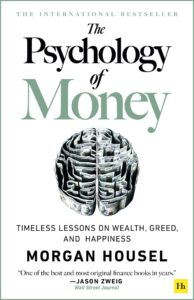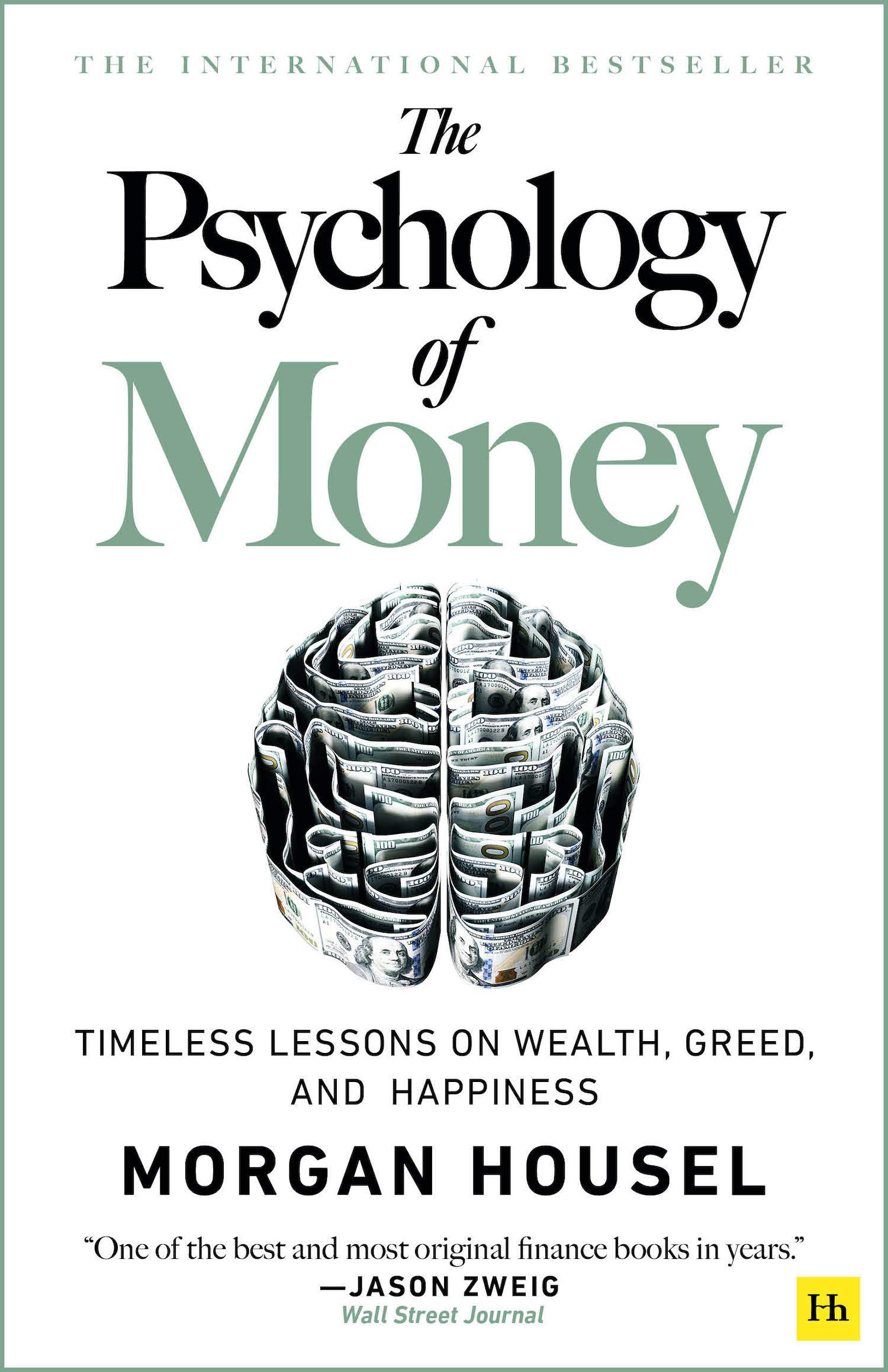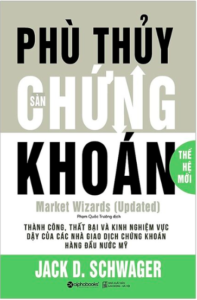21.02.11 Psychology of Money (Morgan Housel)
Timeless Lessons on Wealth, Greed, and Happiness

Leo: good book, can’t say it’s something new or excellent but decent book, decent approach about money. Basically the main ideas are: don’t compare yourself with other, have your own financial goals, people are NOT crazy just different approach/games they’re playing, find your own game and stick to it, savings is always good – do it regularly, low cost index fund is good, compounding is excellent – allow time to do it wonder, above all – focus on what you can control (savings, patience, emotional…) rather than what you can’t (economy cycle, timing market, policy, world situations…), believe in the greater over time of the world…
→ good thing to take out: savings + low cost index fund X Times/Compounding → control TIME
**** Some good quotes ***
Ronald Read was patient; Richard Fuscone was greedy. That’s all it took to eclipse the massive education and experience gap between the two.
*****
Financial success is not a hard science. It’s a soft skill, where how you behave is more important than what you know.
*****
You could understand it better through the lenses of psychology and history, not finance.
To grasp why people bury themselves in debt you don’t need to study interest rates; you need to study the history of greed, insecurity, and optimism. To get why investors sell out at the bottom of a bear market you don’t need to study the math of expected future returns; you need to think about the agony of looking at your family and wondering if your investments are imperiling their future.
*****
But every financial decision a person makes, makes sense to them in that moment and checks the boxes they need to check. They tell themselves a story about what they’re doing and why they’re doing it, and that story has been shaped by their own unique experiences.
*****
Benjamin Graham is known as one of the greatest investors of all time, the father of value investing and the early mentor of Warren Buffett. But the majority of Benjamin Graham’s investing success was due to owning an enormous chunk of GEICO stock which, by his own admission, broke nearly every diversification rule that Graham himself laid out in his famous texts. Where does the thin line between bold and reckless fall here? I don’t know. Graham wrote about his GEICO bonanza: “One lucky break, or one supremely shrewd decision—can we tell them apart?” Not easily.
*****
Be careful who you praise and admire. Be careful who you look down upon and wish to avoid becoming.
Or, just be careful when assuming that 100% of outcomes can be attributed to effort and decisions
*****
Therefore, focus less on specific individuals and case studies and more on broad patterns.
Studying a specific person can be dangerous because we tend to study extreme
*****
People who have control over their time tend to be happier in life is a broad and common enough observation that you can do something with it.
*****
Nothing is as good or as bad as it seems.
*****
To make money they didn’t have and didn’t need, they risked what they did have and did need. And that’s foolish. It is just plain foolish. If you risk something that is important to you for something that is unimportant to you, it just does not make any sense.
There is no reason to risk what you have and need for what you don’t have and don’t need.
*****
- The hardest financial skill is getting the goalpost to stop moving.
*****
- There are many things never worth risking, no matter the potential gain.
*****
His skill is investing, but his secret is time.
That’s how compounding works.
*****
But good investing isn’t necessarily about earning the highest returns, because the highest returns tend to be one-off hits that can’t be repeated. It’s about earning pretty good returns that you can stick with and which can be repeated for the longest period of time. That’s when compounding runs wild.
*****
Getting money requires taking risks, being optimistic, and putting yourself out there.
But keeping money requires the opposite of taking risk. It requires humility, and fear that what you’ve made can be taken away from you just as fast. It requires frugality and an acceptance that at least some of what you’ve made is attributable to luck, so past success can’t be relied upon to repeat indefinitely.
*****
There are two reasons why a survival mentality is so key with money.
One is the obvious: few gains are so great that they’re worth wiping yourself out over.
The other, as we saw in chapter 4, is the counterintuitive math of compounding.
*****
“Charlie and I always knew that we would become incredibly wealthy. We were not in a hurry to get wealthy; we knew it would happen. Rick was just as smart as us, but he was in hurry”
*****
More than I want big returns, I want to be financially unbreakable. And if I’m unbreakable I actually think I’ll get the biggest returns, because I’ll be able to stick around long enough for compounding to work wonders.
*****
Compounding doesn’t rely on earning big returns. Merely good returns sustained uninterrupted for the longest period of time—especially in times of chaos and havoc—will always win.
*****
Room for error—often called margin of safety—is one of the most underappreciated forces in finance. It comes in many forms: A frugal budget, flexible thinking, and a loose timeline—anything that lets you live happily with a range of outcomes.
*****
The idea that something can gain over the long run while being a basket case in the short run is not intuitive, but it’s how a lot of things work in life.
*****
“I’ve been banging away at this thing for 30 years. I think the simple math is, some projects work and some don’t. There’s no reason to belabor either one. Just get on to the next.”
—Brad Pitt
*****
The great art dealers operated like index funds. They bought everything they could. And they bought it in portfolios, not individual pieces they happened to like. Then they sat and waited for a few winners to emerge.
That’s all that happens.
*****
Anything that is huge, profitable, famous, or influential is the result of a tail event—an outlying one-in-thousands or millions event
*****
Forty percent of the companies in the index were effectively failures. But the 7% of components that performed extremely well were more than enough to offset the duds.
*****
Napoleon’s definition of a military genius was, “The man who can do the average thing when all those around him are going crazy.”
*****
A good definition of an investing genius is the man or woman who can do the average thing when all those around them are going crazy.
Tails drive everything.
*****
At the Berkshire Hathaway shareholder meeting in 2013 Warren Buffett said he’s owned 400 to 500 stocks during his life and made most of his money on 10 of them. Charlie Munger followed up: “If you remove just a few of Berkshire’s top investments, its long-term track record is pretty average.”
*****
The highest form of wealth is the ability to wake up every morning and say, “I can do whatever I want today.”
*****
The ability to do what you want, when you want, with who you want, for as long as you want, is priceless. It is the highest dividend money pays.
*****
More than your salary. More than the size of your house. More than the prestige of your job. Control over doing what you want, when you want to, with the people you want to, is the broadest lifestyle variable that makes people happy.
*****
But doing something you love on a schedule you can’t control can feel the same as doing something you hate.
*****
A wise old owl lived in an oak,
The more he saw the less he spoke,
The less he spoke, the more he heard,
Why aren’t we all like that wise old bird?
*****
The world grew its “energy wealth” not by increasing the energy it had, but by decreasing the energy it needed
*****
When you define savings as the gap between your ego and your income you realize why many people with decent incomes save so little. It’s a daily struggle against instincts to extend your peacock feathers to their outermost limits and keep up with others doing the same.
*****
Intelligence is not a reliable advantage in a world that’s become as connected as ours has.
But flexibility is.
*****
If you have flexibility you can wait for good opportunities, both in your career and for your investments. You’ll have a better chance of being able to learn a new skill when it’s necessary. You’ll feel less urgency to chase competitors who can do things you can’t, and have more leeway to find your passion and your niche at your own pace. You can find a new routine, a slower pace, and think about life with a different set of assumptions. The ability to do those things when most others can’t is one of the few things that will set you apart in a world where intelligence is no longer a sustainable advantage.
*****
If you view “do what you love” as a guide to a happier life, it sounds like empty fortune cookie advice. If you view it as the thing providing the endurance necessary to put the quantifiable odds of success in your favor, you realize it should be the most important part of any financial strategy.
*****
“If it’s not consistent, well, life isn’t always consistent.”
*****
A trap many investors fall into is what I call “historians as prophets” fallacy: An overreliance on past data as a signal to future conditions in a field where innovation and change are the lifeblood of progress.
*****
investors have feelings. Quite a few of them. That’s why it’s hard to predict what they’ll do next based solely on what they did in the past.
*****
The correct lesson to learn from surprises is that the world is surprising. Not that we should use past surprises as a guide to future boundaries; that we should use past surprises as an admission that we have no idea what might happen next.
*****
The only way to deal with them is by increasing the gap between what you think will happen and what can happen while still leaving you capable of fighting another day.
*****
“the purpose of the margin of safety is to render the forecast unnecessary.”
*****
The idea is that you have to take risk to get ahead, but no risk that can wipe you out is ever worth taking.
*****
You have to survive to succeed. To repeat a point we’ve made a few times in this book: The ability to do what you want, when you want, for as long as you want, has an infinite ROI.
*****
The biggest single point of failure with money is a sole reliance on a paycheck to fund short-term spending needs, with no savings to create a gap between what you think your expenses are and what they might be in the future.
*****
Individual investors fall for this when making their own investments, too. The average equity fund investor underperformed the funds they invested in by half a percent per year, according to Morningstar—the result of buying and selling when they should have just bought and held.⁵¹
*****
It sounds trivial, but thinking of market volatility as a fee rather than a fine is an important part of developing the kind of mindset that lets you stick around long enough for investing gains to work in your favor.
*****
When investors have different goals and time horizons—and they do in every asset class—prices that look ridiculous to one person can make sense to another, because the factors those investors pay attention to are different.
*****
Bubbles aren’t so much about valuations rising. That’s just a symptom of something else: time horizons shrinking as more short-term traders enter the playing field.
*****
We might not even have different styles. We’re just playing a different game
*****
Optimism is the best bet for most people because the world tends to get better for most people most of the time.
*****
Assuming that something ugly will stay ugly is an easy forecast to make. And it’s persuasive, because it doesn’t require imagining the world changing. But problems correct and people adapt. Threats incentivize solutions in equal magnitude. That’s a common plot of economic history that is too easily forgotten by pessimists who forecast in straight lines.
*****
astrophysics is a field of precession. It isn’t impacted by the vagaries of human behavior and emotions, like finance is. Business, economics, and investing, are fields of uncertainty, overwhelmingly driven by decisions that can’t easily be explained with clean formulas, like a trip to Pluto can.
*****
it’s never as good or as bad as it looks.
*****
Manage your money in a way that helps you sleep at night.
*****
No matter what you’re doing with your money you should be comfortable with a lot of stuff not working.
*****
Over the years I came around to the view that we’ll have a high chance of meeting all of our family’s financial goals if we consistently invest money into a low-
*****
Cost index fund for decades on end, leaving the money alone to compound.
*****
We invest money from every paycheck into these index funds—a combination of U.S. and international stocks. There’s no set goal—it’s just whatever is leftover after we spend.
*****
My investing strategy doesn’t rely on picking the right sector, or timing the next recession. It relies on a high savings rate, patience, and optimism that the global economy will create value over the next several decades
*****
The lifestyles of a small portion of legitimately rich Americans inflated the aspirations of the majority of Americans, whose incomes weren’t rising.
A culture of equality and togetherness that came out of the 1950s–1970s innocently morphs into a Keeping Up With The Joneses effect.
Now you can see the problem.
*****
That there’s a broad middle class without systematic inequality, where your neighbors next door and a few miles down the road live a life that’s pretty similar to yours.
—



